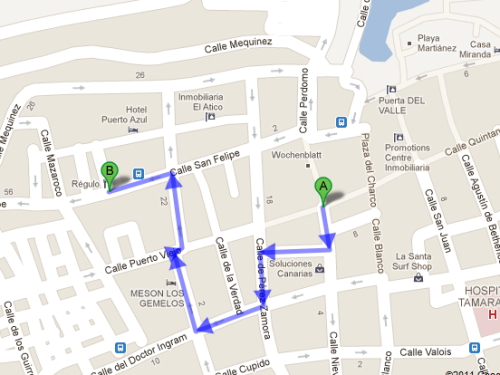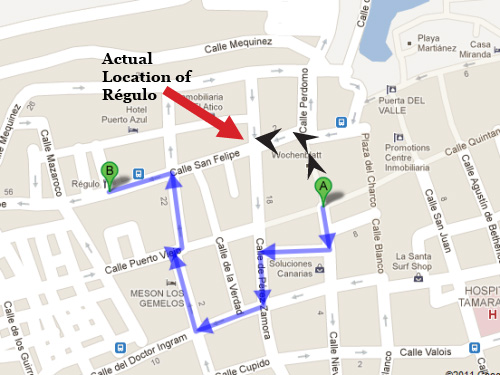Every so often I read about how someone has ditched, or is thinking of ditching their guidebooks because a) aspects are out of date as soon as they are printed and b) if you want a map you’re better using Google Maps.
I sort of understand the guidebook being out of date point, but unless destination advice comes from someone living in a location, there’s always the chance that information can be out of date whether it’s in a guidebook, on Facebook or whatever. Hell, even if you’re being given advice by someone who lives in situ, it is very difficult for them to keep up to date with the reality of a never-ending merry-go-round of bars and restaurants opening and closing. In the circle of life, things change very rapidly.
But this isn’t really an issue, or shouldn’t be. As a reason for condemning guidebooks to death it’s a bit of a red herring. Think about the name – travel guidebook. It’s a guide, not the gospel. It exists to assist…not as a blueprint. Travelling for me is about discovery and guidebooks merely act as a key to unlocking a destination.
One thing in favour of travel guidebooks as opposed to advice on Twitter, for example, is that I know guidebooks have been thoroughly researched by a writer who has taken a number of factors into consideration. I’m a massive fan of Twitter, but (and this is no different from Tripadvisor) I don’t always know the credentials or, more importantly, the objectivity of people providing advice. That is massively important to me. I can’t see the difference between someone I don’t know on Tripadvisor telling me where the best restaurant in Negombo is as opposed to someone I don’t know telling me on Twitter.
But the guidebook versus Twitter etc. debate will run and run. Personally I don’t see why they can’t continue to exist symbiotically. Both are useful, but with their own limitations.
What really confounds me, however, is the number of times I read about travellers who find their way around using Google Maps as I find Google Maps to often be incredibly inaccurate and misleading when I try to use them.
I have a theory about guidebooks that you can only really tell if one is good or bad if you know the subject location extremely well. Travel writing is the same. I know Tenerife extremely well and I can spot writers who are busking and stretching poetic licence to way beyond it’s breaking limits when they write of ‘beaches that only the locals know’ and ‘secret beauty spots’ they have discovered (well them and every tourist excursion on the island). I can often tell from the content of an article whether the author has ever set foot on the island. I’ve come to the conclusion that Google Maps is similar.
Tenerife is a holiday destination visited by millions each year. It’s popular to the point of being common. It is so on the beaten track that it’s often not taken seriously. Easy peasy then for Google Maps to get it right. Wrong.
Take Régulo restaurant in Puerto de la Cruz. This is a restaurant that is recommended in just about every guidebook going (complete with correct address). Try looking for it on Google Maps and then getting directions from an obvious landmark like Plaza del Charco and this is what you get.
First of all the location is wrong, but even if it was actually correct, the route directions are simply bizarre.
This is where it is really located and what route I, or any sensible person, would take to get there.
It even gets it wrong when it comes to where I live. If I was to follow Google Maps to get home, I’d be lost wandering around banana plantations for days in search of roads that simply do not exist.
This is why I’m astounded that people seem to talk of it as a bible to reliable travel and appear to be able to navigate their way around places that sound much more remote and exotic. I try and drop Google’s little Street View man near the harbour in Molyvos, Greece and he refuses to budge. In fact he ain’t going anywhere in Molyvos or on Symi or in Kandy in Sri Lanka. I try to find Sauciehall Lane in Glasgow and I’m given a few options, spread across the city.
I was trained how to use maps to navigate almost featureless terrain but Google Maps with its hit or miss restaurant/hotel locations confounds. So here’s my plea to all those travellers out there who swear they use Google Maps.
What is it that I’m overlooking? How do you find your way around using Google Maps when there is so much information on them that simply isn’t accurate?



1 Trackback / Pingback